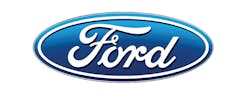The world of so-called “light duty” diesels is getting more complex. Any auto manufacturer with diesel options either has their own oil, such as GM’s dexos2, or is specifying the oils to be used based on the recommendation of the engine builder, such as Cummins, who specifies API CK-4 for its engines. All of this is the result of the introduction of API CK-4/FA-4 in December of 2016. Since these categories have been introduced, there have been over 800 licenses granted for CK-4 but less than 100 for FA-4.
It seems logical that FA-4 would be the product of choice since it was developed as a fuel economy version of CK-4. However, the use of API FA-4 oils in heavy-duty applications has been limited by the issue of backward compatibility. The heavy-duty diesel fleet in North America averages 14.4 years in age. The older engines in service require a high temperature, high shear rate viscosity (HTHSV) of 3.5 cP minimum, which CK-4 meets; while API FA-4 specifies an HTHSV of 2.9 – 3.2 cP. Until the older engines in the fleets are replaced and/or new test data is developed showing the lower viscosity will protect these older engines, API FA-4 will be a relatively minor part of the market.
Currently in the heavy-duty market (class 7 and 8), only Daimler NA factory fills their heavy-duty diesel products with API FA-4. They also recommend it for engines going back to model year 2010. All other HD engine manufacturers factory fill with API CK-4 (3.5 cP) SAE 10W-30. Cummins recommends API FA-4 for certain engines, but not generally. Paccar allows the use of API FA-4 in certain engines, as well. Volvo/Mack has not recommended API FA-4 to-date.
In March, Ford Motor Company put out a position statement about API CK-4 and API FA-4 identifying proper applications for both. This statement is primarily about the Ford F-150 series of pickup trucks. For those of you who are unaware of it, the F-150 is the single largest selling vehicle nameplate in North America. According to Automotive News, 2018 sales estimates indicate about 900,000 F-150s will be sold, while approximately 5 percent of them will be diesel powered.
Ford noted that beginning on December 1, 2016, the American Petroleum Institute (API) began licensing two new diesel engine oil categories: API CK-4 and API FA-4. API CK-4 was released to replace API CJ-4. API FA-4 is a low-viscosity diesel engine oil recommended for diesel engines designed for a lower viscosity oil and providing additional fuel economy benefits.
Ford recommends API FA-4 motor oil in its newly introduced, smaller diesel engines such as the F-150 with the 3.0L diesel engine and the Transit Connect with the 1.5L diesel engine. Ford continues to recommend against using API FA-4 oils in larger Ford diesel engines, like the 3.2L and 6.7L diesel engines, as well as the older Ford diesel engines.
Quoting the position statement: “Ford continues to recommend motor oils meeting Ford specification WSS-M2C171-F1 instead of API CK-4 motor oils in the 3.2L and 6.7L Ford diesel engines as well as the older Ford diesel engines. Testing Ford has done on some API CK-4 formulations have shown inadequate wear protection compared to API CJ-4 formulations developed and licensed before 2016. Therefore, Ford has included additional requirements beyond API CK-4 in WSS-M2C171-F1 to provide additional wear protection. Like many other diesel engine manufacturers, with their own internal OEM specification, Ford is recommending oils that meet an OEM specification, Ford Material Engineering Specification WSS-M2C171-F1. The customer should use an oil showing that it meets this specification. Motor oils meeting this specification are shown on the motor oil tab on http://www.fcsdchemicalsandlubricants.com/main/. To ensure you protect your Ford diesel engine, use an oil meeting Ford specification WSS-M2C171-F1 like Motorcraft Super Duty Motor oil or API FA-4 like Motorcraft F-150 Diesel Motor Oil. Please consult your owners guide for the proper application.”
Ford had recommended against the use of API CK-4 in their 3.2L and 6.7L diesel engines because of concerns about phosphorus levels that were too low and which could lead to increased levels of wear. Instead they recommended the use of API CJ-4 oils. Ford then developed WSS-M2C171-F1 that included a 6.7L diesel engine wear test along with API CK-4 credentials. Ford continues to recommend this specification for their larger diesel engines. The current approval list for WSS-M2C171-F1 contains the names of over 300 engine oils in viscosity grades ranging from SAE 0W-40 to SAE 15W-40.
Bottom line: Make sure you know the engine that you are servicing. Most of the online lubricant recommendation services will have the right recommendations, but make sure you have the correct oil on-hand. All of the major oil marketers have an SAE 10W-30 API FA-4 engine oil in their product lines.






